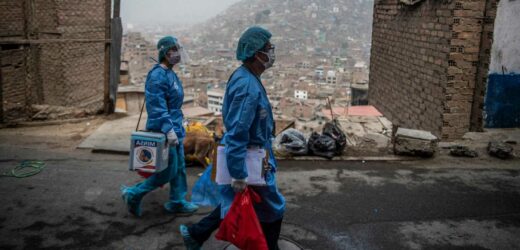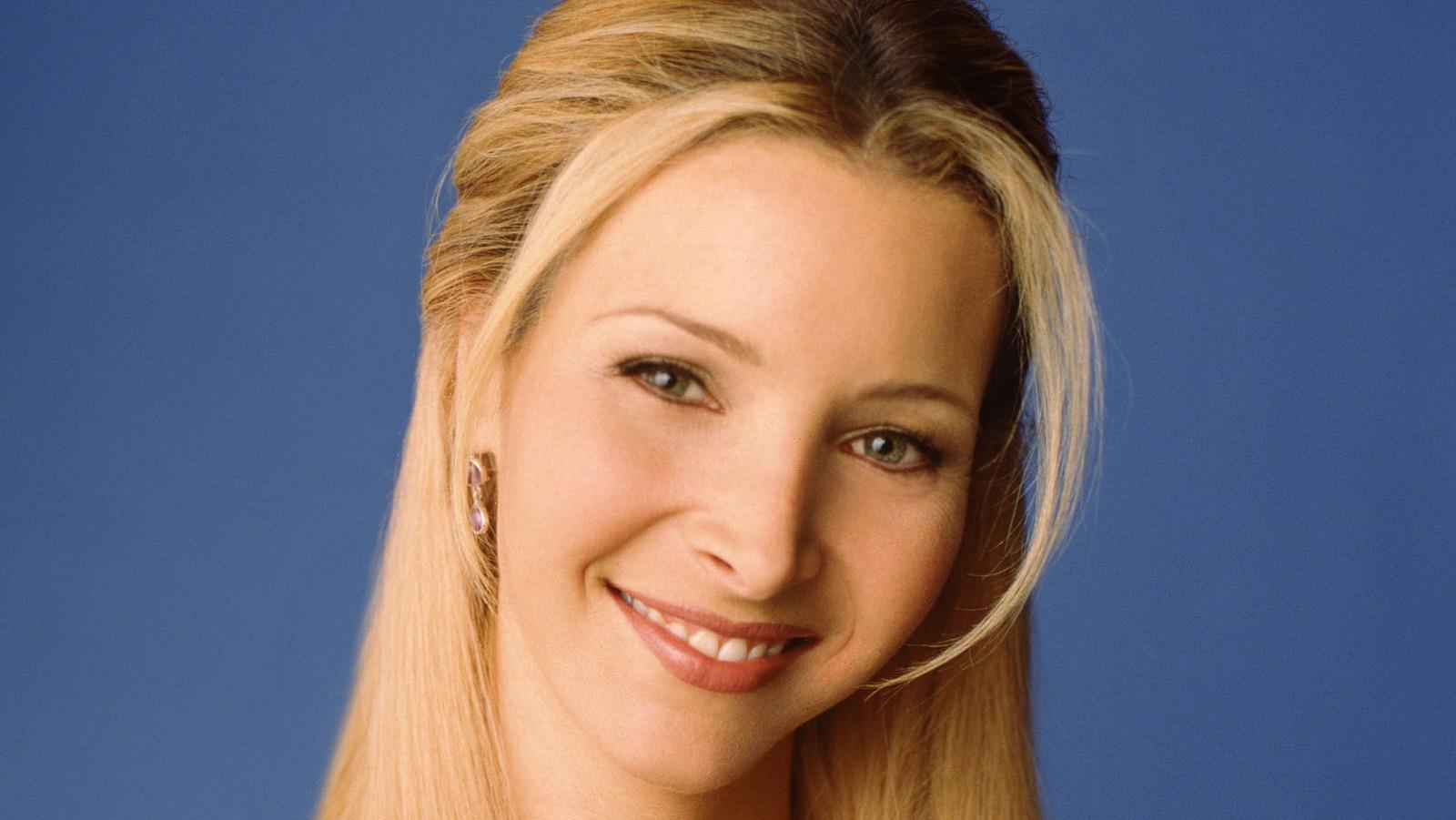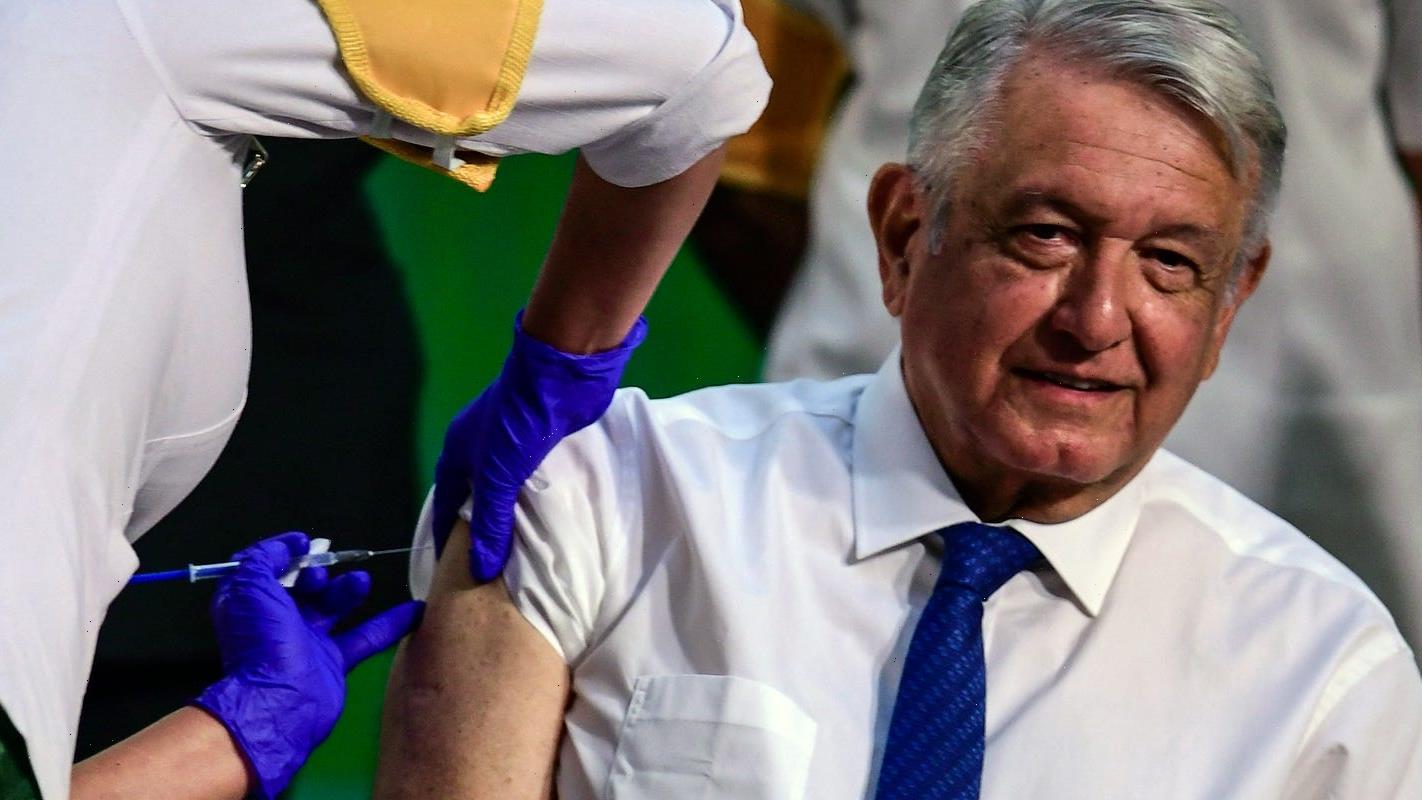The presidential candidate for the Peru Libre party, leftist Pedro Castillo, flutters a national flag from a balcony of the party's headquarters in Lima on June 7, 2021, a day after runoff elections. – Right-wing populist Keiko Fujimori held a narrow lead Monday in Peru's presidential election, but the crisis-hit nation's race was too close to call as votes were still being tabulated from countryside bastions of support for radical leftist Pedro Castillo. With over 95% of the votes tallied, the result of the runoff election is still unknown. (Photo by Luka GONZALES / AFP) (Photo by LUKA GONZALES/AFP via Getty Images) *** BESTPIX *** ORG XMIT: 0 ORIG FILE ID: 1233321481 (Photo: AFP Contributor#AFP, AFP via Getty Images)
LIMA, Peru (AP) — A rural teacher-turned-political novice and the daughter of an imprisoned former president on Monday traded the lead in a close race for Peru’s presidency in a runoff election as the coronavirus pandemic continues to batter the Andean country.
With 94% of ballots tallied, leftist Pedro Castillo had 50.07% of the vote, while conservative Keiko Fujimori had 49.92%, according to official results. This is Fujimori’s third run for president, a role her father held in the 1990s.
The figures released by Peru’s elections agency, the National Office of Electoral Processes, included almost all votes cast near the country’s electoral processing centers. The agency was still waiting for the arrival of votes from remote rural areas and abroad.
“No one can say for sure at this point who is going to win,” Fernando Tuesta, a political scientist at the Pontifical Catholic University of Peru and former Peruvian elections chief, told a local radio station. In 2016, now-former President Pedro Pablo Kuczynski defeated Fujimori by just 42,597 votes.
Fujimori’s support was expected to come from voters in the capital of Lima and other urban areas, while Castillo’s sympathizers are in rural communities.
Neither candidate had made any statements Monday. Castillo left the rural, Andean district of Tacabamba early to travel to Lima.
The polarizing populist candidates have promised coronavirus vaccines for all and other strategies to alleviate the health emergency that has killed more than 180,000 people in Peru and pushed millions into poverty. The election followed a statistical revision from Peru’s government that more than doubled the COVID-19 death toll previously acknowledged by officials.
Voters across Peru, where voting is mandatory, headed to the polls throughout Sunday under a set schedule meant to minimize long lines. No disturbances were reported at voting sites, which even opened in San Miguel del Ene, a remote village in a cocaine-producing area where two weeks ago a massacre ended with 16 people dead.
Pre-election polls indicated the candidates were virtually tied heading into the runoff. In the first round of voting, featuring 18 candidates, neither received more than 20% support and both were strongly opposed by sectors of Peruvian society.
“The candidate who becomes (president), either Keiko or Pedro, the people, the only thing we have to do is accept it, but they better govern well,” said Lucia Carrion, a street vendor in Lima. “There is so much corruption. One of them has to stop so much corruption that there is here in Peru.”
The pandemic not only has strained Peru’s medical and cemetery infrastructure, left millions unemployed and highlighted longstanding inequalities in the country. It has also deepened people’s mistrust of government as it mismanaged the COVID-19 response and a secret vaccination drive for the well-connected erupted into a national scandal.
Amid protests and corruption allegations, the South American country cycled through three presidents in November. Some analysts warn this election could be another tipping point for people’s simmering frustrations and bring more political instability.
President Francisco Sagasti after voting said the candidates should respect the results and ask their followers to refrain from staging protests over the outcome. Fujimori asked her followers to be prudent because “the margin is so small,” while Castillo demanded a review of all ballots to “guarantee the true popular will of the Peruvian people.”
Fujimori, a former congresswoman, has promised various bonuses to people, including a $2,500 one-time payment to each family with at least one COVID-19 victim. She has also proposed distributing 40% of a tax for the extraction of minerals, oil or gas among families who live near those areas.
Keiko Fujimori herself has been imprisoned as part of a graft investigation though she was later released. Her father, Alberto Fujimori, governed between 1990 and 2000 and is serving a 25-year sentence for corruption and the killings of 25 people. She has promised to free him should she win.
Castillo until recently was a rural schoolteacher in the country’s third-poorest district, deep in the Andes. The son of illiterate peasants entered politics by leading a teachers’ strike. While his stance on nationalizing key sectors of the economy has softened, he remains committed to rewriting the constitution that was approved under the regime of Fujimori’s father.
Both candidates oppose abortion and same-sex marriage.
Peru is the second largest copper exporter in the world and mining accounts for almost 10% of its GDP and 60% of its exports, so Castillo’s initial proposal to nationalize the nation’s mining industry set off alarm bells among business leaders. But regardless of who gets picked to succeed Sagasti on July 28, investors will remain skittish.
___
Garcia Cano reported from Mexico City.
Source: Read Full Article



